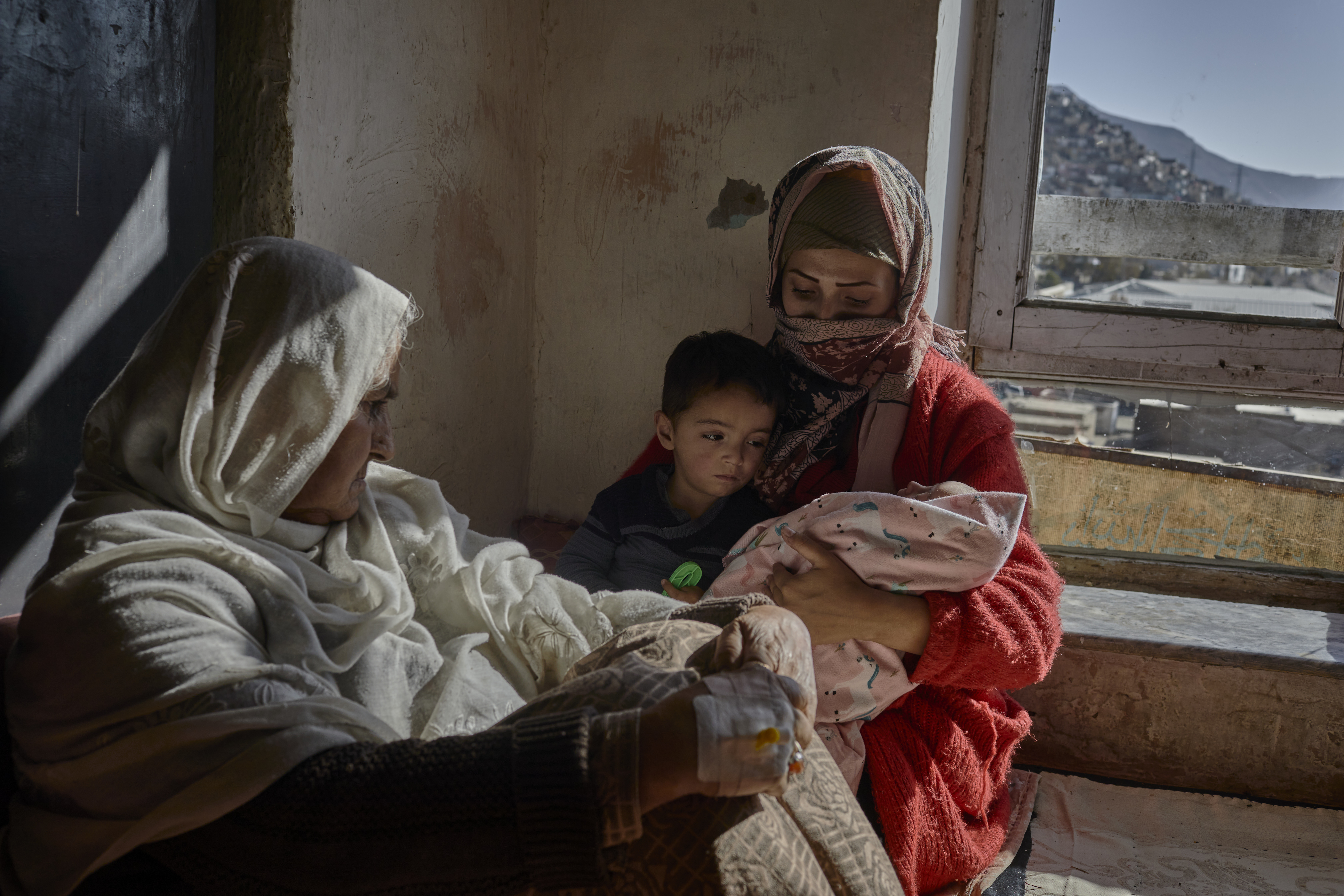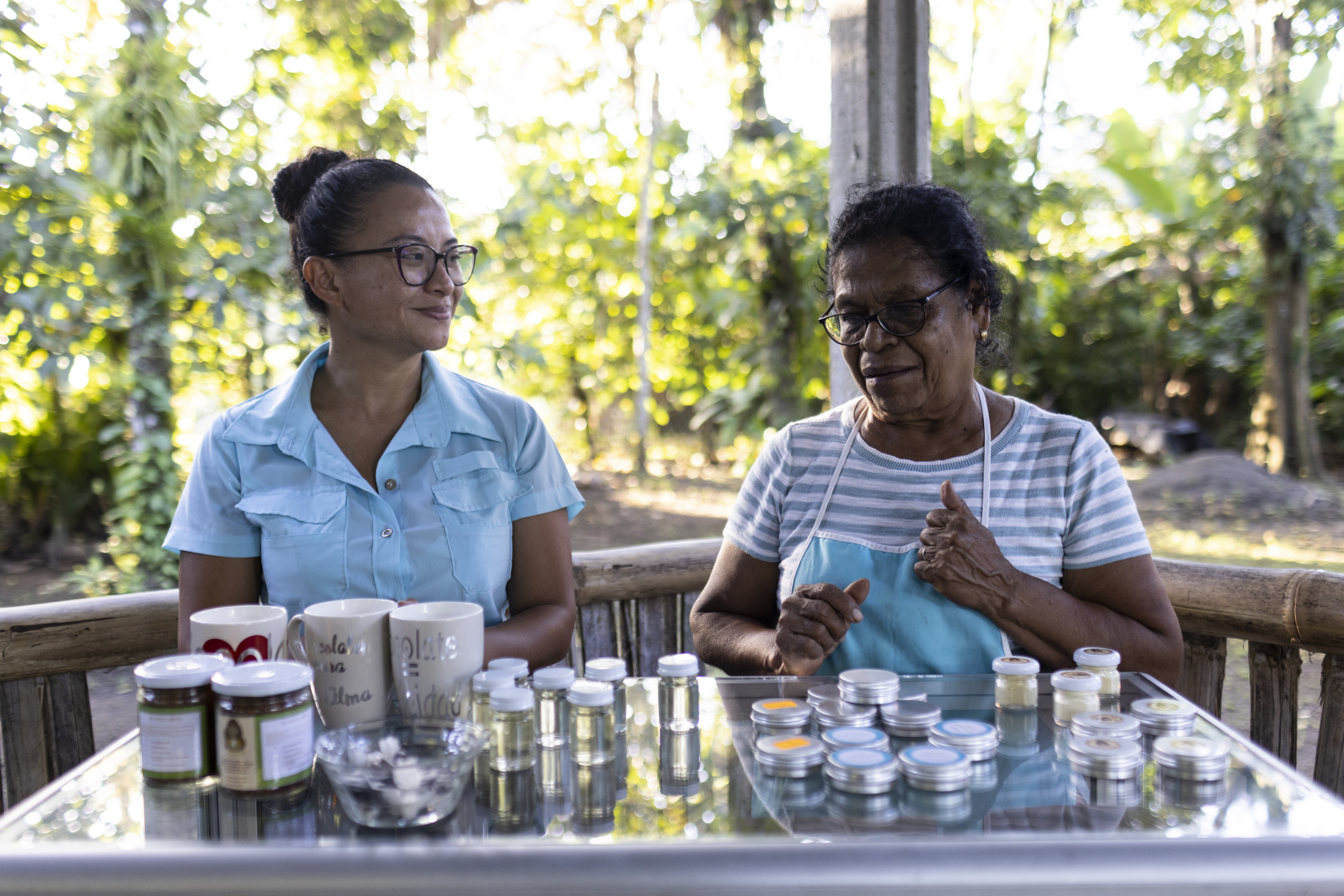International Women's Day: Text messages spotlight abuse of Congolese refugee women
International Women's Day: Text messages spotlight abuse of Congolese refugee women

GOMA, Democratic Republic of the Congo, March 7 (UNHCR) - From Kinshasa to Kivu this Saturday, an electronic text message will urge men around the vast Democratic Republic of the Congo (DRC) to appreciate the women in their lives and do more to protect them from abuse.
"Acknowledge and celebrate your loved ones. Invest in your mothers, wives, sisters and daughters by ensuring their protection," says the special International Women's Day message, which will be transmitted by the Vodacom text message service under an agreement with the UN refugee agency.
The one-day text message campaign comes at a time when the prevalence of sexual and gender-based violence (SGBV) targeting women and children - including tens of thousands of internally displaced - is at an alarming level in the DRC, especially in the violence-plagued eastern provinces of North Kivu and South Kivu.
"The idea is to use mobile phones for action - supporting human rights work and activism with text messaging," said UNHCR's Sharon Gschaider-Kassahun, an expert on SGBV who came up with the idea as part of a broader campaign to use telecommunications to publicize this issue throughout 2008.
Eusebe Hounsokou, UNHCR's Kinshasa-based regional representative, believes the problem of SGBV threatens the return of true peace. "Barbaric acts committed against women and girls in conflict areas can neither lead to a peaceful resolution of any disagreement nor accelerate post-conflict reconstruction," he warned.
In DRC, a wide range of abuses against female IDPs are regularly reported, including beatings, abduction, sexual slavery, mutilation and rape, which often exposes the victims to HIV and other sexually transmitted infections.
UN Population Fund figures show that about 3,060 cases of sexual violation, mainly against women, were reported in North Kivu last year and 515 in South Kivu province. Independent observers believe these figures are conservative.
Children also suffer badly; the annual UN report on children and armed conflict, released in December, said that "the number of incidents of rape and other sexual violence against children remains extremely high." It added that of 10,381 survivors of sexual violence recorded by UN partners in eastern DRC in the year up to June 2007, some 37 percent were children.
"There are too many killings, too many rapes and abuses that should stop as soon as possible," said a 55-year-old woman living in an IDP site run by UNHCR in North Kivu, where stepped-up fighting over the past year has caused some 400,000 people to flee their homes and exacerbated the SGBV situation.
Thousands of women have been raped during the violence in the Kivu provinces, according to humanitarian organizations. Women are raped so incessantly and so brutally that many are left with deep physical and mental scars and the perpetrators are not only armed men, but also male civilians.
Although SGBV can happen anywhere in DRC, women are particularly vulnerable when they are out collecting wood or looking for food, negotiating military roadblocks or hiding in the bush during fighting. Some are abused in front of family members, compounding their humiliation and shame.
A 22-year-old displaced woman in eastern DRC said she was out collecting wood from a nearby forest with her brother and a friend when they were confronted by two men carrying machetes. "I was raped in front of my friend and my brother," she said, adding that the men took turns.
UNHCR protection officers in the Kivu provinces have been monitoring cases of SGBV and the UN refugee agency is setting up referral mechanisms in the IDP sites where it works so that staff can follow up on cases and offer protection. It also counsels IDPs on how to seek redress and get legal advice.
One unpleasant side effect of SGBV, according to IDP leaders in North Kivu camp, is that some victims lose all sense of self-worth and resort to survival sex to support their children. In a bid to combat this phenomenon, UNHCR is supporting income generation projects to steer victims away from prostitution.
Meanwhile, the refugee agency's focus is on International Women's Day and the text messaging campaign, among other awareness activities planned - particularly in rural areas. The good thing about mobile phones, says UNHCR's Gschaider-Kassahun, is that people in the most remote areas seem to have them. And that's good for spreading the messages of tolerance and equality.
By Francesca Fontanini in Goma, Democratic Republic of the Congo








